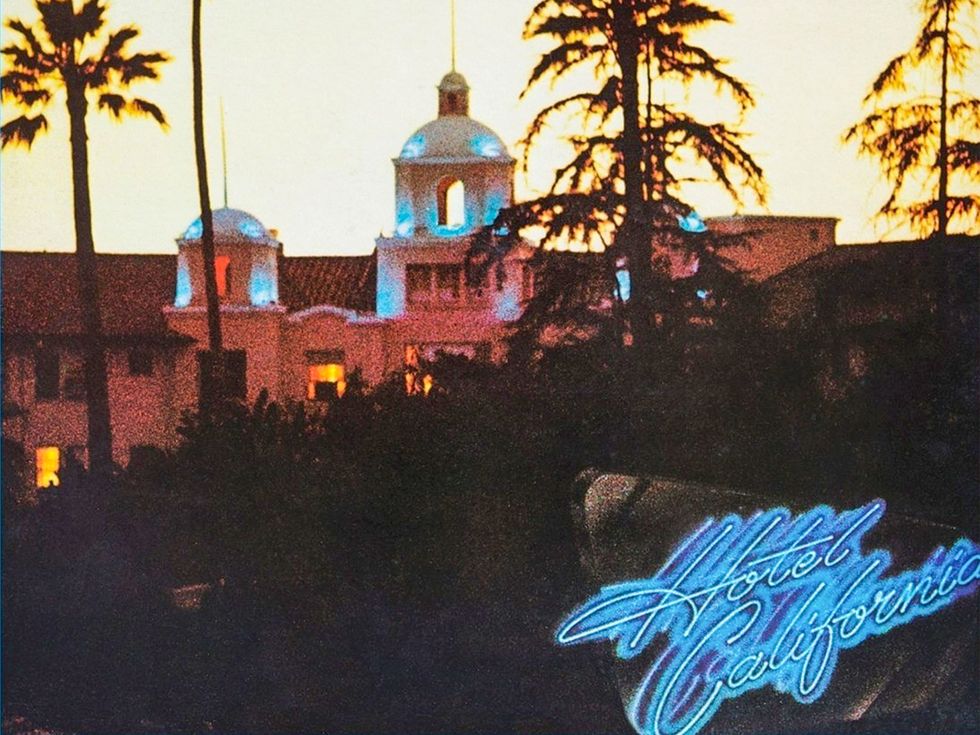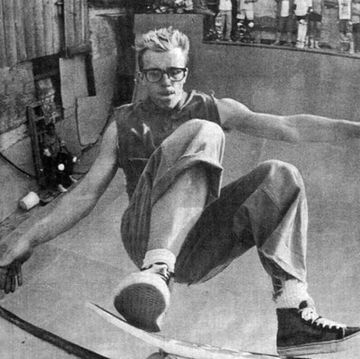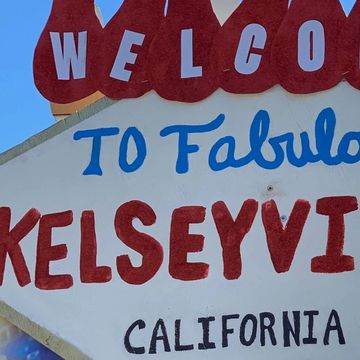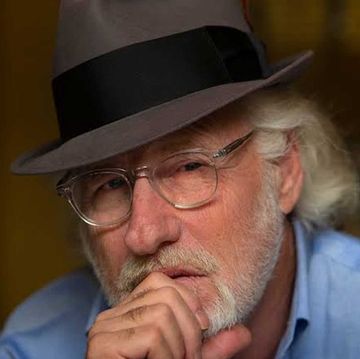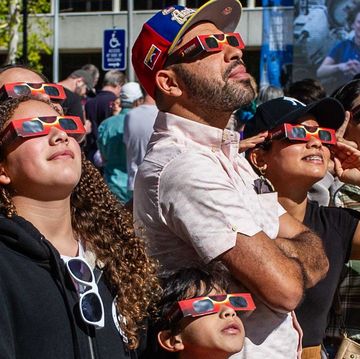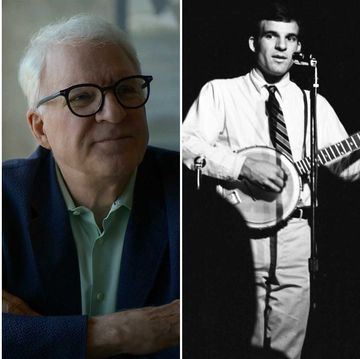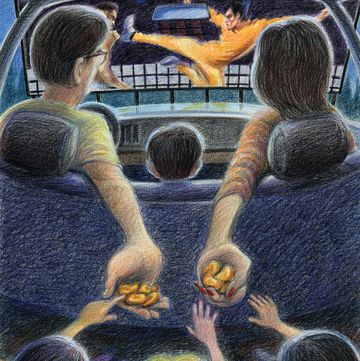Classic rock doesn’t get much more classic than the Eagles’ “Hotel California.” Multi-hit, multiplatinum, it was an essential part of any respectable dorm-room music collection in the late 1970s or early ‘80s. And its iconic songs play on forever on today’s oldies radio stations and Spotify playlists.
But “Hotel California” is more than a mere classic rock album. It also sits at a critical turning point in the history of popular music. When it was released in late 1976, it represented the pinnacle of what was known variously as country rock or California rock, a tuneful, smooth, slightly twangy, definitely mellow sound that dominated the mid-’70s, exemplified by the likes of Poco, Buffalo Springfield, Jackson Browne and Linda Ronstadt (who had once employed the Eagles as a backing band).
In many ways, “Hotel California” was a concept album about California itself. Songs like “Hotel California,” “Life in the Fast Lane” (the creation of the album was legendarily cocaine-powered), “Pretty Maids All in a Row” and “The Last Resort” touch on archetypes of California life and style. Opening up on a “dark desert highway” and fading out at a decadent resort, its songs evoked visions of California for listeners hundreds and thousands of miles away from the Golden State.
At the same time, the album was bleak and cynical. Song titles like “Wasted Time” and “Victim of Love” and lyrics like “You call some place paradise — kiss it goodbye” were like an elegy for the malaise of the Jimmy Carter years. It was very much music of its time and place. (Ironically, much of the album actually was recorded in Florida.)
But even as “Hotel California” was shooting up the charts and selling the first of more than 32 million albums, the sound of popular music was changing — radically. Disco was already hustling out of the club scene. Punk was starting to rumble in England and Manhattan’s Lower East Side. New Wave was just about to crest. Within months after the release of “Hotel California,” the Clash, the Sex Pistols, Elvis Costello and the Talking Heads put out their first albums — with some of these artists making a point in interviews to thumb their noses at mellow, highly commercial bands like the Eagles.
Popular music was changing, becoming both more rhythmic and angrier, and suddenly the Eagles seemed a bit stodgy and out of step. “Hotel California” was a classic that was also the end of a musical era. The Eagles, scrambling to keep up with musical trends, got noticeably rockier and funkier with their next album, 1979’s “The Long Run.”
Which is not to say that “Hotel California” was some sort of popular music dead end. Far from it. In its own way, it became one of the most influential albums of all time. Modern country music is unimaginable without it — the smooth, slickly produced, tight-harmony, slightly rocky sound of today’s country stars like Garth Brooks, Tim McGraw and Florida Georgia Line draws directly from the Eagles’ California country-rock blueprint. And, of course, just about anyone reading this probably can instantly recall the album’s songs just by seeing the titles. As the sneering punks later discovered, there’s nothing wrong with being immensely popular.
So, like any great classic rock album, “Hotel California” remains important and ubiquitous more than four decades after its release. You know what the song says about a certain hotel: You can check out any time you like, but you can never leave.

Mark Potts was the founding managing editor of Alta. Formerly a journalist for the Washington Post, Chicago Tribune and Associated Press, Mark created one of the first electronic news prototypes in the early 1990s and is a media entrepreneur, executive and consultant. He was the co-author of two business books, The Leading Edge and Dirty Money.
